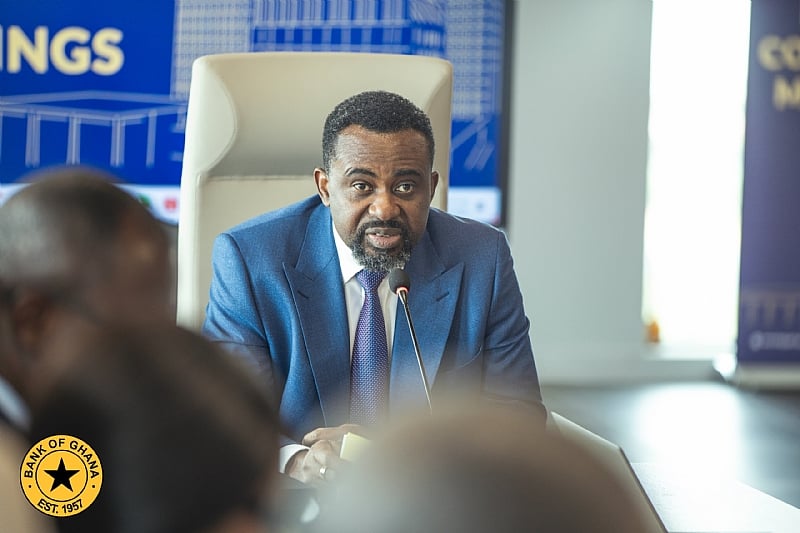The Bank of Ghana (BoG) is poised to implement a new wave of reforms to solidify the recent resurgence of the Ghanaian cedi, which has experienced a remarkable appreciation of nearly 19 percent since the beginning of the year. This positive trajectory is attributed to a combination of stringent fiscal measures and a hawkish monetary policy stance adopted by the central bank. These combined efforts have successfully bolstered market confidence and mitigated inflationary pressures, paving the way for a more stable macroeconomic environment. The BoG’s Governor, Dr. Johnson Asiama, announced the forthcoming reforms during the launch of the 124th Monetary Policy Committee (MPC) meeting in Accra. He highlighted the bank’s intention to prioritize strategies that deepen foreign exchange inflows and enhance oversight of the foreign exchange market, thereby further bolstering the cedi’s stability.
The cedi’s significant appreciation between April and May 2025 has played a crucial role in alleviating imported inflation pressures and restoring public trust in the currency. This resurgence is a result of several contributing factors, including the BoG’s prudent monetary policy, improved market sentiment stemming from increased confidence in the economy’s direction, and positive developments in the external sector. These gains mark a significant step towards macroeconomic stability and provide a foundation for sustained economic growth. While acknowledging the positive momentum, Governor Asiama cautioned against complacency, emphasizing the fragility of the current macroeconomic environment.
Despite the cedi’s recovery and the easing of some inflationary pressures, significant challenges remain. The inflation outlook, while showing signs of improvement, remains susceptible to second-round effects, potential disruptions to food supply chains, particularly from northern Ghana and the Sahel region, and external price shocks stemming from the volatility of global commodity markets. These vulnerabilities underscore the need for continued vigilance and proactive measures to mitigate potential risks. The Governor also highlighted the potential impact of escalating global geopolitical tensions and shifts in international trade policies, particularly those initiated by the United States, as emerging threats to the Ghanaian economy. These external factors introduce a layer of uncertainty that could impact commodity prices, exchange rates, and financial flows in emerging markets like Ghana.
The 124th MPC meeting convenes against a backdrop of sustained cedi strength against the US dollar and ongoing efforts to consolidate the progress achieved in inflation management. The BoG’s decision in March to raise the policy rate by 100 basis points to 28 percent, as explained by Dr. Asiama, was a necessary step to anchor inflation expectations and curb rising inflation. This proactive measure aimed to stabilize the economy and prevent runaway inflation. Now, with the cedi exhibiting signs of stability and external pressures showing some signs of easing, analysts speculate that the central bank may opt to hold the policy rate steady in the upcoming MPC meeting. This potential decision would be aimed at supporting lending activities, stimulating economic growth, and fostering a more conducive environment for businesses to thrive.
The deliberations of the MPC are scheduled to conclude on Friday, May 23, 2025, with the Bank of Ghana announcing its new policy direction at a subsequent press briefing. The outcome of this meeting holds significant implications for the future trajectory of the Ghanaian economy. The market anticipates the BoG’s pronouncements on its policy stance, particularly regarding the policy rate and further measures to consolidate the cedi’s gains and manage inflationary pressures. The central bank faces a delicate balancing act: maintaining stability while fostering growth.
The BoG’s commitment to deepen foreign exchange inflows and strengthen oversight of the forex market is a crucial step towards ensuring the long-term stability of the cedi. These measures, coupled with ongoing efforts to manage inflation and navigate external risks, are essential for building a resilient and robust economy. The central bank’s policy decisions will play a pivotal role in shaping Ghana’s economic outlook and determining its ability to weather potential future challenges. Market participants, businesses, and the public will keenly observe the BoG’s policy direction and its potential impact on the economy’s trajectory.














